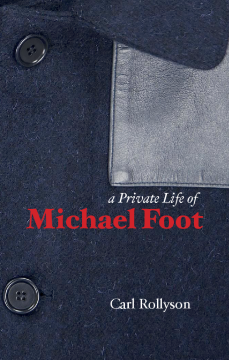
Additional Information
Book Details
Abstract
The late Michael Foot, once leader of the Labour party, lives on as a major figure in British political history, although he is best remembered as a fiery and eloquent standard-bearer for socialist beliefs and policies.
But what of the man behind the politics? In this new biography, Carl Rollyson chronicles the intricacies and intimacies of the life Michael Foot led away from the public eye. Fashioned from transcripts of more than two hundred conversations between author and subject that took place during three years Rollyson spent researching the life of Foot’s wife, Jill Craigie, this book presents a portrait that contrasts starkly with Foot’s public image. In the manner of Boswell, Rollyson presents us with a man who—for all his public oratory—in private often found himself lost for words.'A Private Life of Michael Foot' adopts a no holds barred approach to biography, leaving a political figure stripped bare, and revealing a deeply complex, introverted man for all to see.
This is not a conventional biography. I rely not on documents, but almost exclusively on recorded interviews and memories of Michael Foot constituting a raw record of conversations not smoothed over by a biographical narrative. This is a book about process. I show how I went about obtaining my story, which ostensibly concerned Jill Craigie, who married Michael Foot in 1949. Michael entered Jill’s life in 1945. He was such an important source for this biography that, inevitably, I learned as much about him as about her.
Readers come to biographies to learn about the subject, not the biographer. Yet the biographer is, in a sense, half the story. Or, as Paul Murray Kendall put it in The Art of Biography, every biography is an autobiography. So A Private Life of Michael Foot is an effort to show how a biographer struggles to tell his own story, even as family and friends cherish differing narratives about that same subject. My wish is to highlight these clashes of perception rather than reconcile their discrepancies.
There is value, too, in showing the rough edges of biography, the stops and starts, in an unapologetic fashion. I wonder if there has ever been a biography that has treated a British political and literary figure in quite so revealing a fashion.
Carl Rollyson
